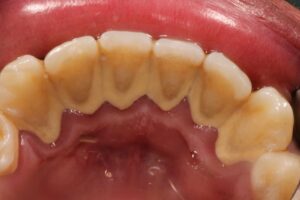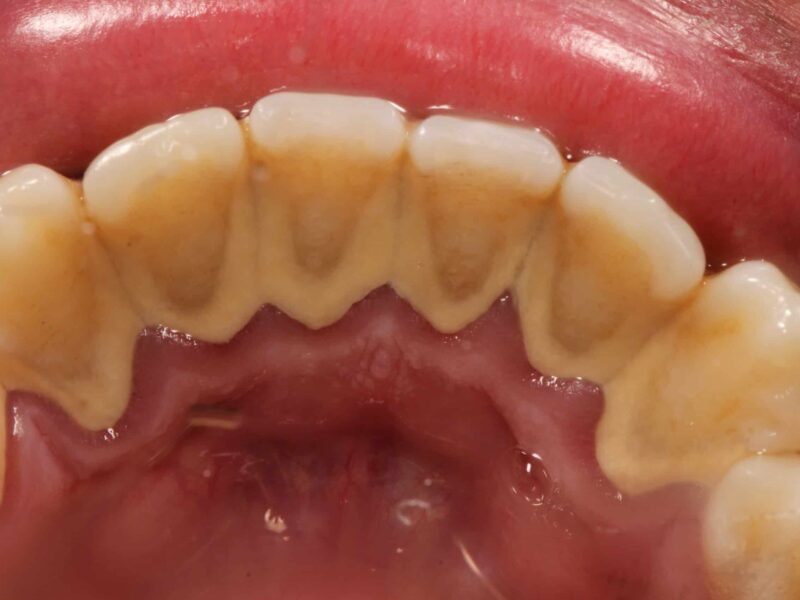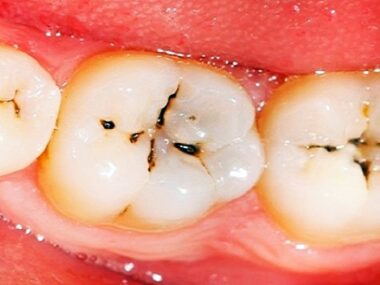Dental tartar, also known as dental calculus, is a hardened deposit that forms on teeth when dental plaque mineralizes over time.
Dental plaque is a sticky, colorless film of bacteria that constantly forms on teeth. When plaque is not adequately removed through regular oral hygiene practices, such as brushing and flossing, it can mineralize and become tartar.
Formation
Tartar forms when minerals, primarily calcium, and phosphate, in saliva combine with plaque on the teeth. This process, known as mineralization, results in the hardening of the plaque into a yellow or brownish deposit.
Appearance

Tartar is typically visible as a hard, rough deposit on the teeth, usually near the gumline or between the teeth. It can vary in color, and its texture makes it difficult to remove through regular brushing alone.
Consequences
Tartar buildup can lead to several oral health issues. It provides a rough surface for more plaque to adhere to, leading to an increased risk of cavities. Tartar near the gumline can also contribute to gum disease, as it may irritate the gums and create a breeding ground for bacteria.
Prevention
Regular and effective oral hygiene practices are crucial for preventing tartar buildup. This includes brushing teeth at least twice a day with fluoride toothpaste, flossing daily to remove plaque between teeth, and visiting the dentist regularly for professional cleanings.
Removal
Once tartar has formed, it cannot be removed by regular brushing and flossing. A dental professional, such as a dentist or dental hygienist, must use specialized tools to scrape and remove the hardened deposits during a dental cleaning.
Risk Factors
Certain factors can increase the likelihood of tartar formation, including poor oral hygiene, smoking, inadequate saliva flow, and certain medical conditions that affect saliva composition.
It’s important to address tartar promptly, as its presence can contribute to more severe oral health issues.
Regular dental check-ups and cleanings are essential for maintaining good oral hygiene and preventing tartar buildup. If you notice signs of tartar on your teeth, it’s advisable to consult with a dentist for appropriate care and guidance.










